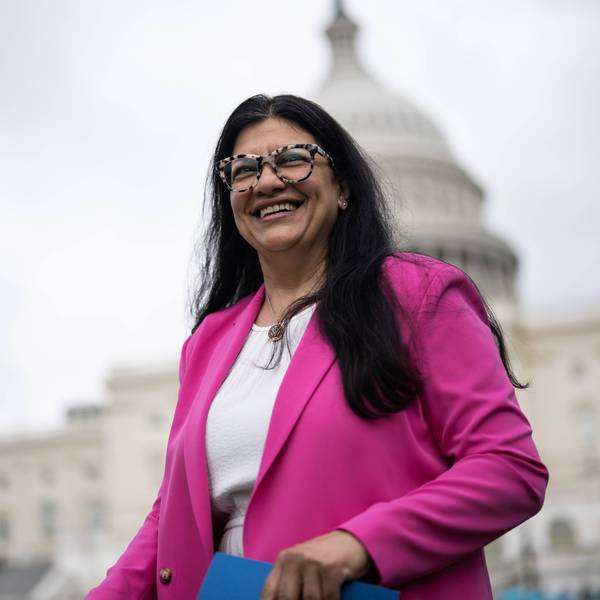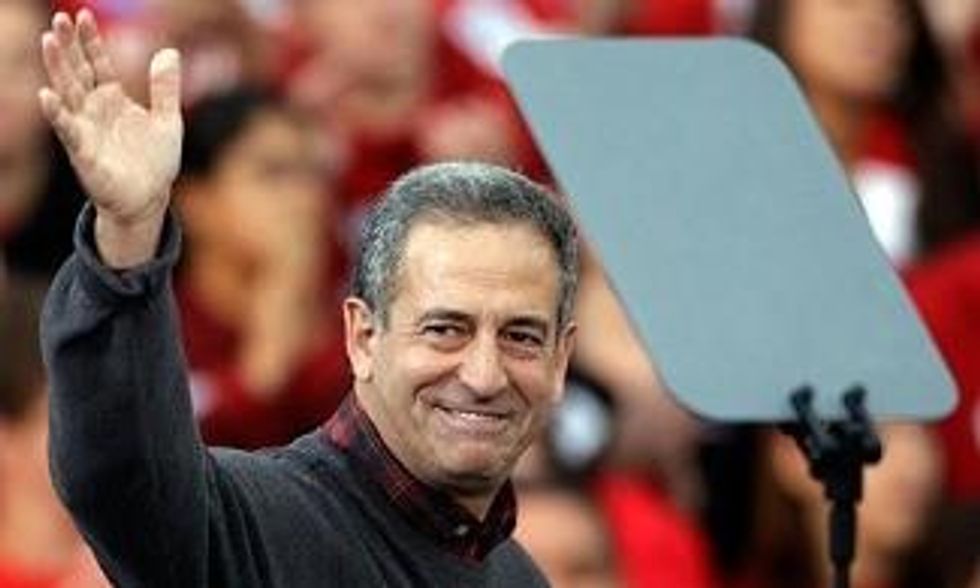"The president is wrong." So says one of the newly appointed co-chairs of President Barack Obama's re-election campaign.
Those four words recently headlined the website of the organization Progressives United, founded by former US Senator - and now Obama campaign adviser - Russ Feingold. He is referring to Obama's recent announcement that he will accept Super Pac funds for his re-election campaign. Feingold's statement goes:
"The president is wrong to embrace the corrupt corporate politics of Citizens United through the use of Super Pacs - organizations that raise unlimited amounts of money from corporations and the richest individuals, sometimes in total secrecy. It's not just bad policy; it's also dumb strategy."
And, he says, it's "dancing with the devil".
In 1905, President Theodore Roosevelt said to Congress:
"All contributions by corporations to any political committee or for any political purpose should be forbidden by law."
He signed a bill into law banning such contributions in 1907. In 2012, this 100-year history of campaign-finance controls died, thanks to five US supreme court justices who decided, in the 2010 Citizens United case, that corporations can use their money to express free speech, most notably in their efforts to influence federal elections.
After 18 years representing Wisconsin in the US Senate, Feingold lost his re-election to self-funded Republican multimillionaire and Tea Party favorite Ron Johnson. Since then, Feingold has been teaching law, started Progressives United and, while supporting the effort to recall Wisconsin's embattled Republican governor, Scott Walker, has steadfastly refused to run against him or for the US Senate seat being vacated by retiring Democratic Senator Herb Kohl.
Feingold was the sole member of the US Senate to vote against the USA Patriot Act. He was a fierce critic of the Bush administration's warrantless wiretapping program. Although Obama, as a senator, originally threatened to filibuster any legislation that would grant retroactive immunity to the telecom corporations involved with the wiretapping, he reversed himself on the eve of the Democratic Convention in 2008 and voted for the bill. Feingold remained adamantly opposed.
On the war in Afghanistan, Feingold told me:
"I was the first member of the Senate to call for a timeline to get us out of Afghanistan. Even before Obama was elected, when it was between (John) McCain and Obama, I said, 'Why are we talking about a surge?' ... Sending our troops over there, spending billions and billions of dollars in Afghanistan makes no sense. And I think it was a mistake for the president to do the surge, and I think he's beginning to realize we need to get out of there."
Feingold opposed Obama's Wall Street reform bill, saying it was too weak, and supported the state attorneys general, like New York's Eric Schneiderman and another of the new campaign co-chairs, California's Kamala Harris, who, at first, opposed the proposed settlement with the five largest banks over allegations of mortgage-service fraud and "robo-signing". Feingold's reaction to the $25bn settlement that the White House pushed through?
"We were among the few that refused to do a little dance after this announcement ... whenever it ends up being Wall Street, somehow there's always a clunker in there."
As I interviewed Feingold, just hours after he was named one of the 35 Obama campaign co-chairs, I asked him if he was an odd choice for the position. Feingold responded:
"How about a co-chair that's proud of him for bringing us healthcare for the first time in 70 years? How about a co-chair who thinks that he has actually done a good thing with the economy and helped with the stimulus package, and we've had 22 months of positive job growth? How about a co-chair for a president that has the best reputation overseas of any president in memory, that has reversed the awful damage of the Bush administration, who in places like Cairo and in India and Indonesia has reached out to the rest of the world.
"Believe me, on balance, there's no question. And finally, how about a co-chair of a president who I believe will help us appoint justices who will overturn Citizens United?"
Until then, as the Obama campaign "dances with the devil" of Super Pacs, perhaps campaign co-chair Russ Feingold will help us follow the money.




